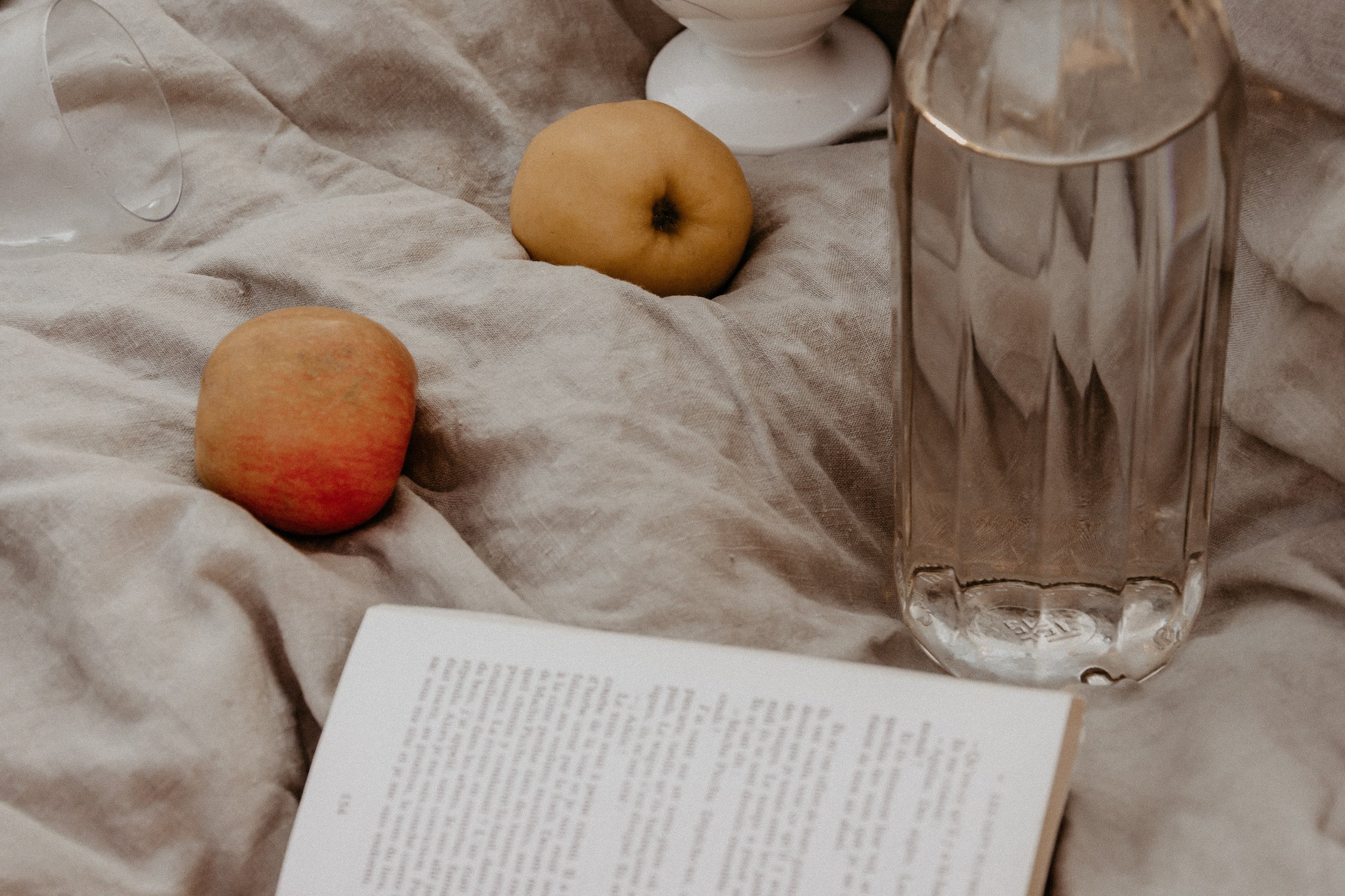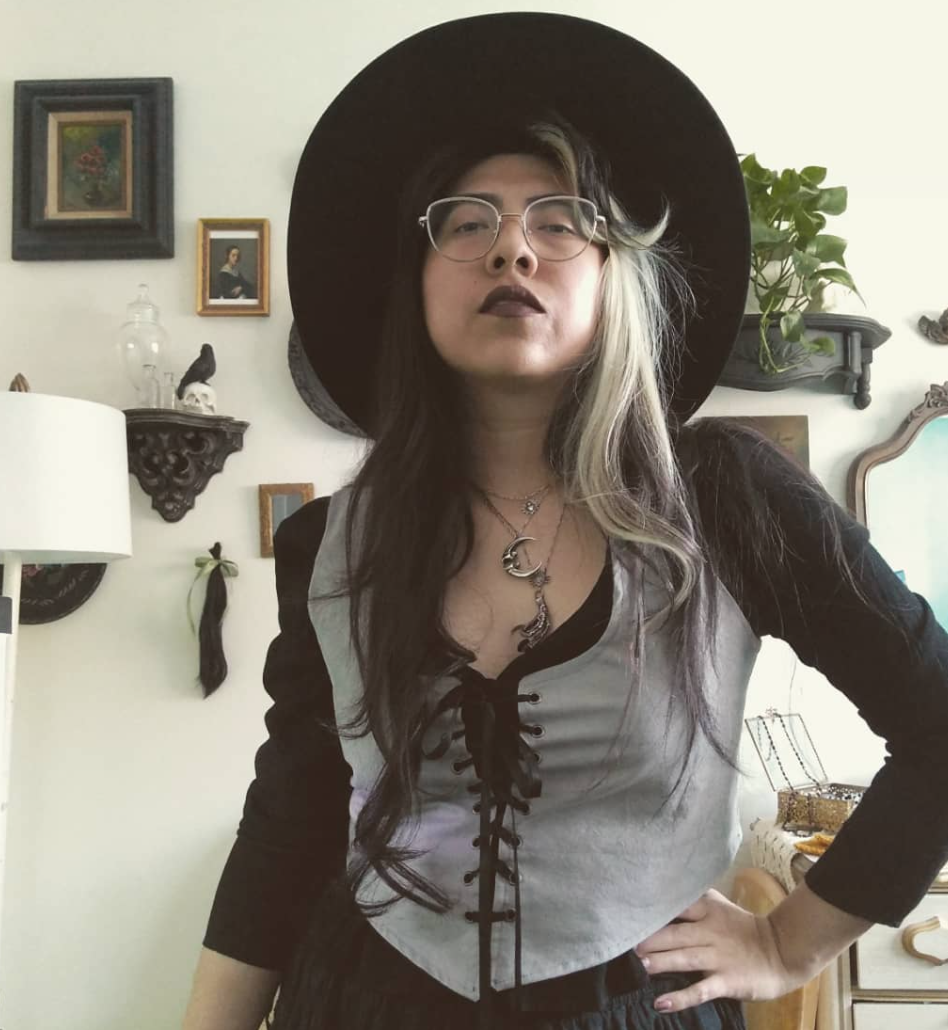An Interview with Jonny Black
by Lisa Marie Basile
This interview is part of our new Creator Series, a series of Q&As designed to help you get to know people who are writing, making, and doing beautiful things.
I discovered Jonny Black’s poetry in an issue of Ghost Bible — a truly gorgeous literary journal — and was immediately struck by her lush language and her bio’s mention of poltergeists (yes, please, always poltergeists). I was lured in!
Jonny Black is currently working on a novel (I secretly think poets make the best novelists, shh), and can be found at @jonnyblackwrites. In this chat, we discuss her influences, inspirations, and writing the kind of work that truly matters to you, despite what might be popular or expected of you.
I know you write in a few genres, so what are you working on at the moment?
I've got this novella/novelette that I've been working on for what seems like a third of my life at this point! I've been calling it Death and The Necromancer for lack of a better title. It's about Death seeking out a Necromancer to resurrect a cat. I wanted to write something that didn't take itself too seriously, something that was silly even, and it ended up being too real, especially during the pandemic.
I've only just come back to it after about a year. I'm also working on a poetry collection called The Apocalypse Journals. I have about four in the collection and they all happened to be written while listening to Daft Punk's Random Access Memories. I was sad to hear about the dissolution of the band earlier this year. I realized that I'd unintentionally written odes to many of their songs, so I want to keep writing a few more and dedicate it to the band. Each poem is an entry in the various journals of those who have survived the apocalypse and are wandering about the deadened earth and its empty cities.
I am always interested in learning about how writers approach their craft. I think we all get caught up in these ideas of a perfect writing ritual, sharing only when we’re prolific—but I’ve been asking writers to share even the messy parts. What’s your creative process?
Well, I used to write every day in college in my black notebook and I miss doing that. When I was working at a beauty store, I used to eat breakfast in the Del Taco across the street.
I would sit there for an hour or two sometimes, because I had to share a car with my mother, so I arrived very early.
I'd order their chorizo breakfast wrap, cheddar potato poppers (God, please bring those back soon!) and the huge 1-dollar iced tea. Then I'd write until my shift started.
Usually, I had my earphones in and either Kiasmos, Daft Punk, or Rhye blasting away. Now, I try to just write down thoughts I have whenever I get something good. Sometimes I'm able to make the time to write, but working remotely has made it hard for me to compartmentalize my time—I'm often distracted by other things I think I should be doing, and other ways I think I should be productive. I hope that I can get the courage again to go out, sit somewhere way too early in the morning, order some greasy breakfast food, and write.
Who are some of your influences?
Well, Daft Punk is definitely in my top ten, if not top five! Blade Runner, Tron and Tron: Legacy are also huge aesthetic inspirations. I've also been heavily influenced by Sonya Vatomsky's work: Salt is For Curing was my first real poetry book that I dove into and tried to understand.
My insta feed is also a huge inspiration: @brookedidonato, @KylejThompson and Madeline Garner are big ones. I'm also inspired by the cinema and art installations in general. One of the big things I've tried to do with my poetry is make choices like I would if I were directing a film: I think about aesthetic and drama and movement. I try to create a 3D experience with my work.
How does your culture or identity shape your work?
I got the impression that if I didn't write about my brown pain, I wasn't... representing myself, or that I wasn't enough as a writer.
OH BOY, do I have some thoughts. During my education — both high school and college — I got the impression that if I didn't write about my brown pain, I wasn't... representing myself, or that I wasn't enough as a writer.
I struggle with connecting to my own culture and identity because I'm what my sister (and many chicana/o's) calls a "coconut" — brown on the outside, white on the inside. And I'm not very interested in writing about that. I want to write about apocalypse worlds and vampires and gods that live in backyard ponds!
But I'm all too familiar with the concept of poetry as therapy, so I'm sure I'll get there someday. Most of the stories I write do have indigenous main characters, though. It's important to me that I write about characters like myself. And if I can't do it in poetry, I can at least do it in fiction, vicariously, through a character — you know?
With regards to faith, I like to think of myself as a combination of Jane Eyre and Emily Dickinson. She wrote a poem about how her church was out in nature. That really resonated with me. I have a small collection of poetry that is something of a...mary sue fan-fiction take on a chapter in the bible. It's very small, and it was written a very long time ago, but I'll revisit it someday.
Who are some of your mentors or contemporaries?
Reading Salt is For Curing was like a revelation, and I knew that if Sonya could write like this, with this much gothic drama and color, then so could I. I didn't have to write "contemporary" poetry that I'd seen in journals. I could write mine.
I've already mentioned Sonya Vatomsky! I just really just adore their work. Reading Salt is For Curing was like a revelation, and I knew that if Sonya could write like this, with this much gothic drama and color, then so could I. I didn't have to write "contemporary" poetry that I'd seen in journals. I could write mine.
A huge mentor for me has been Nalo Hopkinson because she was my professor at UCR! I wrote my thesis (also includes an apocalypse, ha!) under her guidance and took both a class on comics and class on fantasy fiction with her. she's such a wealth of knowledge and truly a joy to learn from.
I had another professor — I don't know if I should list her name — at a community college, my first poetry professor. I wrote my first real poems in her class. She gave us such a welcoming and warm environment to learn and write in and I learned so much about what could be done with the form in her class. I feel like I was born there. No, I came into my own there and found my voice.
I have very fond memories from that class, including looking out the dark windows into the near-empty parking lot, espresso chocolate cookies, writing my first chapbook, and very lovely classmates.
Jonny Black is a writer living and working in SoCal. She’s been published in Ghostbible Zine, The Roadrunner Review, and The Spectre Review. When she isn’t working on her novel, she’s usually curled up with a good crochet project watching Vincent Price movies. More of her work can be found on Instagram, @jonnyblackwrites.
































